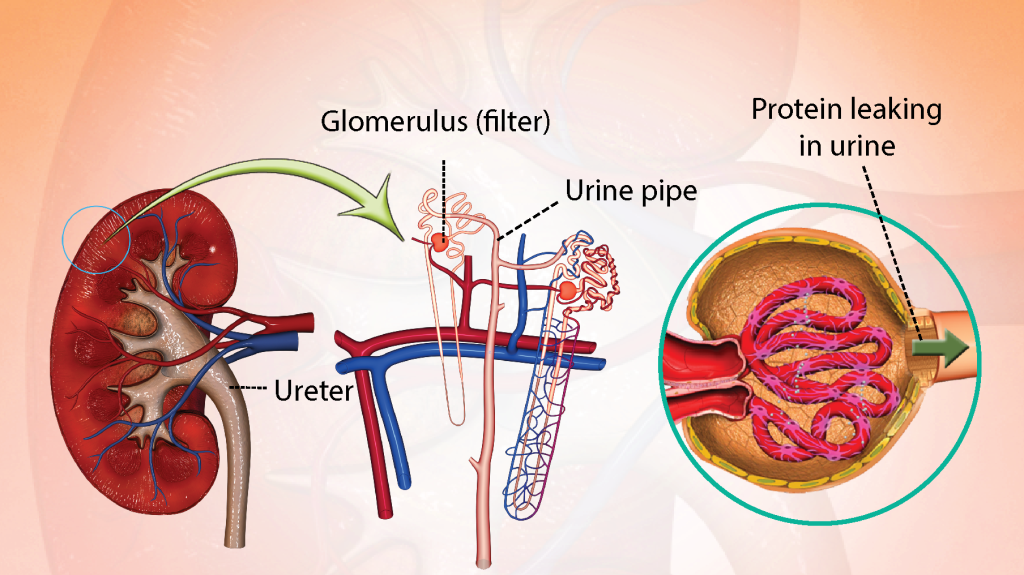Nephritic syndrome
Nephritic syndrome is a kidney disorder characterized by inflammation of the glomeruli, which are the small blood vessels in the kidneys that filter waste and excess fluids from the blood. This inflammation can lead to a variety of symptoms, including blood in the urine, proteinuria (excess protein in the urine), high blood pressure, and decreased kidney function.
There are several different causes of nephritic syndrome, including infections, autoimmune disorders, and genetic disorders. The most common cause is a type of immune-mediated glomerulonephritis, which occurs when the body’s immune system mistakenly attacks the glomeruli, leading to inflammation and damage.
Treatment for nephritic syndrome depends on the underlying cause, but may include medications to reduce inflammation and manage blood pressure, as well as dietary changes to reduce proteinuria and limit salt intake. In some cases, more aggressive treatments such as immunosuppressive therapy or plasmapheresis (a process that filters the blood to remove harmful antibodies) may be necessary.
Without proper treatment, nephritic syndrome can lead to kidney failure, so it’s important to seek medical attention if you experience symptoms suggestive of this condition.






